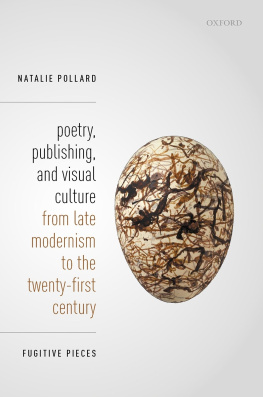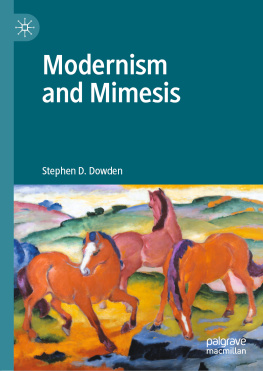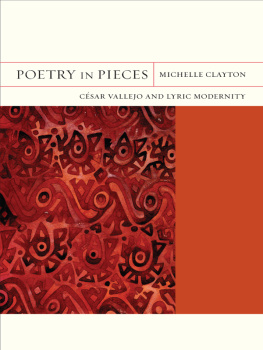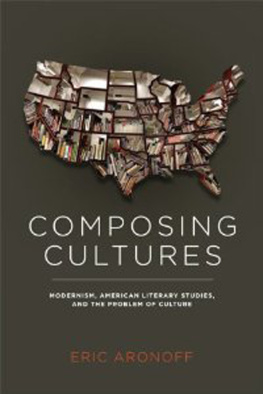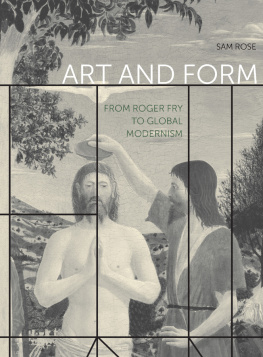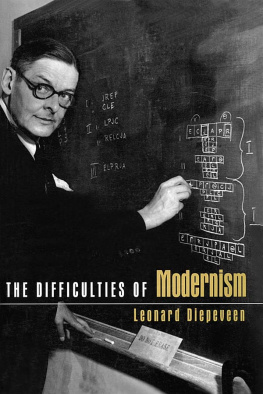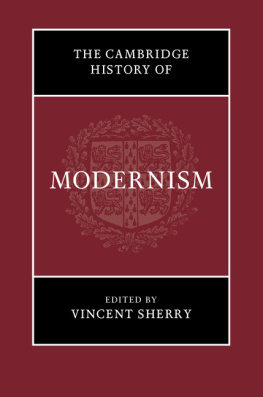Poetry, Publishing, and Visual Culture from Late Modernism to the Twenty-first Century
Fugitive Pieces

Great Clarendon Street, Oxford, OX2 6DP, United Kingdom
Oxford University Press is a department of the University of Oxford. It furthers the Universitys objective of excellence in research, scholarship, and education by publishing worldwide. Oxford is a registered trade mark of Oxford University Press in the UK and in certain other countries
Natalie Pollard 2020
The moral rights of the author have been asserted
First Edition published in 2020
Impression: 1
All rights reserved. No part of this publication may be reproduced, stored in a retrieval system, or transmitted, in any form or by any means, without the prior permission in writing of Oxford University Press, or as expressly permitted by law, by licence or under terms agreed with the appropriate reprographics rights organization. Enquiries concerning reproduction outside the scope of the above should be sent to the Rights Department, Oxford University Press, at the address above
You must not circulate this work in any other form and you must impose this same condition on any acquirer
Published in the United States of America by Oxford University Press
198 Madison Avenue, New York, NY 10016, United States of America
British Library Cataloguing in Publication Data
Data available
Library of Congress Control Number: 2020935565
ISBN 9780198852605
ebook ISBN 9780192593979
Printed and bound by CPI Group (UK) Ltd, Croydon, CR0 4YY
Links to third party websites are provided by Oxford in good faith and for information only. Oxford disclaims any responsibility for the materials contained in any third party website referenced in this work.
Acknowledgements
The project that became Fugitive Pieces began when I was a British Academy Fellow at the University of Reading for three years, where I had the pleasure of regular contact with a lively poetic crew including Peter Robinson, Steven Matthews, Conor Carville, and Matthew Sperling, as well as, in typography, Paul Luna and Martin Andrews. Indeed, I have been waiting a long time to thank Peter Robinson, whose intellectual rigour and engagement poetically, philosophically, and conversationally helped set me down the circuitous path that led to the writing of this book.
Since then, I am lucky to have explored fugitive matters with extremely astute colleagues and fellow writers. Specific chapters in this book owe a great deal to the critical insights and provocations of Antony Caleshu, Jonathan Ellis, Peter Howarth, John McAuliffe, Suzanne Hobson, Hugh Haughton, Will May, Andrea Brady, Hedley Twidle, Don Paterson, Andrew Michael Roberts, Jim Kelly, Louis Blond, and Angie Harris. The book also owes a significant debt to my anonymous readers at Oxford University Press.
I have been readunnervingly closelyby remarkably generous and judicious people. The prodigious intellect of Richard Rowland deserves mention and much else besides, as does his unstinting entanglement in all forms of friendship and collaboration. My great thanks to Mandy Bloomfield for reading and helping me to work out the best way to orient and account for the books trajectory, and to Clara Dawson and Dorothy Butchard for buoying up the writing by engaging with fugitivity so provokingly as it developed.
I am deeply grateful to Katy Barton for the beautiful first editions from the poetry library of much-grieved Roger Trew, which helped keep the final phases of this project personally as well as materially rich and resonant. My thanks to David Devanny for some memorably haunted discussions in Launceston about the fugitive lives and technologies of contemporary poetry and poets. A very warm thank you to Joanna Haynes for our wonderfully animated conversations about the on-going potential of uncanny, entangled co-teaching as part of the Unhoming Pedagogies project, and to Karin Murris for activating these unhomings with us and across the disciplines and beyond at the University of Cape Town in 2019. Thanks also to Rosie Langridge, with whom explorations of contemporary art, poetry, music, wandering, and other artisanal Plymouthian offerings have been a continual source of energy, joy, and adventure.
I owe the most to Hugo Tucker, my toughest critic and most caring reader, for helping me discover what this book was really about, standing by me as it approached completion, and for engaging with infinite patience, intelligence, and love with ideas on the move.
I am grateful to the University of Reading for the space and time which enabled me to work on earlier drafts of this book, and to my colleagues at the University of Exeter, whose support enabled me to take the research leave that aided my completion of the final manuscript. I am extremely grateful to my students at Exeter who have been inspirational in ways which neither they nor I could have envisaged. Particular thanks to Deborah Ashfield, Jasmin Jelley, and Sophie Underdown, whose energetic collaborations and affirmative entanglements have been invaluable.
Sincere thanks to Caroline Bergvall, Paul Muldoon, Denise Riley, and J.H. Prynne for permitting me to quote from their poetry. Thank you to Nina Cummings, John Weinstein, and The Field Museum for permission to use Weinsteins photograph of the Great Bowerbird egg (Chlamydera nuchalis) on the jacket of this book, and to Norman McBeath and Lanfranco Quadrio who generously agreed for their artworks to appear within. I am extremely grateful to the Estates of Djuna Barnes, David Jones, Ted Hughes, Leonard Baskin, Michael Ayrton, and W.S. Graham for granting permission to reproduce material from these artists. Thanks to Faber for permission to quote material by Djuna Barnes, David Jones, Ted Hughes, and Paul Muldoon, and to Carcanet for granting permission to quote from the poetry of F.T. Prince, Tom Raworth, and Charles Tomlinson. Thank you to Enitharmon Press and Sylph Editions for permitting me to use material from the volumes Plan B and When the Pie Was Opened respectively. Thanks to Farrar, Straus, and Giroux for permission to quote from the work of Ted Hughes and Paul Muldoon. I must acknowledge my debt to Amgueddfa CymruNational Museum Wales; Bridgeman Images; British Museum; Brownsword Hepworth; Bowman Sculpture, London; The British Library; Galerie St. Etienne, New York; R. Michelson Galleries; Tate, London; The University of Southampton Library; and University of Maryland Libraries.
An earlier version of on F.T. Prince appears as a chapter entitled Fugitive Pieces: F.T. Prince and Sculpture in Reading F.T. Prince, edited by Will May (Liverpool University Press, 2017): 181209.
Contents
1.1 Drawing by Djuna Barnes, reproduced from The Book of Repulsive Women: 8 rhythms and 5 drawings, by Djuna Barnes (New York: Bruno Chap Books, 1915): 103. Copyright Djuna Barnes Papers, Special Collections and University Archives, University of Maryland Libraries.
The Authors League Fund.
Image courtesy of Djuna Barnes Papers, Special Collections and University Archives, University of Maryland Libraries.
2.1 Exiit Edictum, 1949, David Jones (18951974).
Graphite and gouache on paper. 406330mm. The Estate of David Jones/Bridgeman Images.
Image courtesy of Tate, London 2019.

